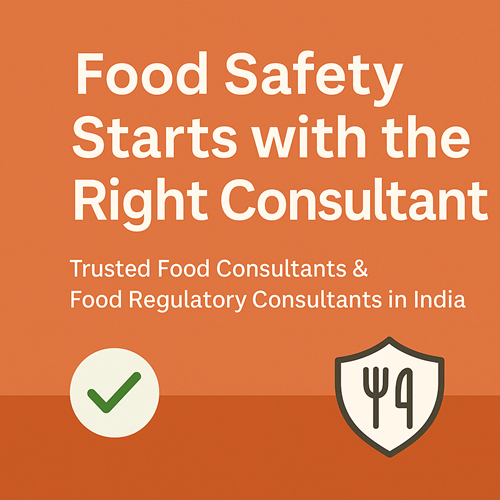Your Trusted Partner in Food Safety & Compliance
Food safety is no longer just a regulatory obligation—it’s a cornerstone of trust, reputation, and business sustainability. In India’s fast-growing food sector, food consultants and food regulatory consultants play a vital role in guiding businesses to stay compliant, reduce risks, and build consumer confidence.
Why Food Safety Audits Matter
Food safety audits are systematic evaluations designed to protect both consumers and businesses. They ensure that companies comply with the Food Safety and Standards Act (FSSA) and align with global frameworks like HACCP, ISO 22000, and FSSC 22000.
For businesses, audits are more than a checkbox activity—they are a strategic investment in:
Regulatory Compliance – Meeting FSSAI and international standards.
Risk Mitigation – Identifying hazards before they escalate.
Consumer Confidence – Demonstrating a commitment to safe practices.
Operational Efficiency – Reducing inspection burdens and fostering proactive management.
Types of Food Safety Audits
Internal Audits – Conducted by the company to verify its Food Safety Management System.
Supplier Audits – Assessing vendors and raw material providers for food safety standards.
Third-Party Audits – Independent evaluations, often required for certifications or export.
Regulatory Audits – Government inspections and sampling.
Each type of audit strengthens the food safety ecosystem and helps businesses scale with credibility.
The Audit Process: A Step-by-Step Guide
A structured audit ensures transparency and compliance:
Preparation – Document readiness (licenses, HACCP plan, training records).
On-site Verification – Inspecting facilities, hygiene, pest control, labeling.
Record Examination – Reviewing lab tests, traceability logs, supplier approvals.
Closing Meeting – Sharing findings and timelines for resolution.
Corrective Action Plan (CAPA) – Addressing gaps and submitting compliance evidence.
Key Focus Areas for Auditors
Food Safety Management Systems (HACCP, ISO).
Facility & Equipment Hygiene.
Staff Training and Personal Hygiene.
Cold Chain and Storage Practices.
Pest Control & Waste Management.
Legal Labeling & Documentation.
Traceability & Recall Readiness.
Benefits of Being Audit-Ready
Proactive Safety Culture – Shifting from reactive to preventive.
Reduced Inspections – Recognized audits can lower FSSAI inspection frequency.
Reputation Boost – Building trust with consumers and partners.
Market Access – Facilitating entry into domestic and export markets.
Audit Readiness Checklist
✔ Valid FSSAI license and documents
✔ HACCP plan updated and implemented
✔ Temperature logs, calibration records, lab test results
✔ Staff health and training records
✔ Traceability and recall drill within 6 months
✔ Pest control and sanitation contracts
✔ Approved supplier list and verification records
✔ CAPA closure for previous non-conformities
The Role of Food Consultants
This is where expert food consultants and food regulatory consultants come in. They:
Guide businesses in aligning with Indian and global food safety standards.
Help prepare for audits and certifications.
Offer compliance strategies that reduce risks and costs.
Enable businesses to expand into new markets with confidence.
If you are a food business operator (FBO) looking to ensure compliance, reduce risk, and build a trusted brand, partnering with a food regulatory consultant is one of the smartest moves you can make.







